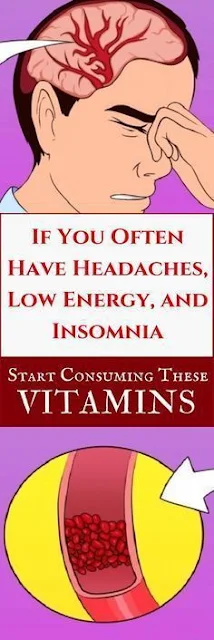Because we don't get enough vitamins, particularly vitamin K and magnesium, we tend to experience a lot of problems, including sleeplessness, headaches, and low energy levels, as a result of our fast-paced modern lifestyle.
So what are the benefits of these two substances?
Magnesium
Mg is the leader of about 300 processes going on inside our body as it creates proteins and amino acids which basically turn the food we eat into energy we need to go through the day.
It is also quite effective when it comes to the treatment of migraines and headaches and the lack of magnesium can lead to cases of insomnia or even severe depression.
Sources
The recommended dietary allowances (RDA) are 400 mg for men aged 19-30 and 420 mg for older; for women, 310 mg for ages 19-30 and 320 mg for older.
Here are the top sources to get your daily dose of magnesium:
– Spinach
– Nuts
– Brown rice
– Bread (especially wholegrain)
– Fish
– Meat
– Avocado
– Vitamin K
Benefits
Vitamin K is responsible for the synthesizing of proteins that we need and are important to stop bleeding and clot blood. If we’re deficient in it, we’ll suffer from bleeding or excessive bruising.
Vitamin K is also very important to protect our valves and arteries from the process of calcification, as well as to decrease the risk of prostate cancer and Alzheimer’s disease.
If it is combined with vitamin D, it will lead the calcium to our bones, but it will also bind to them and they’ll become stronger. Numerous fractures can appear if the levels of vitamin K in our organism are decreased.
Sources
The dietary sources in which you can get Vitamin K are:
Green leafy vegetables: mustard greens, spinach, beet greens, turnip greens, collards, kale etc.
Hot spices including chili powder, cayenne pepper, paprika and curry.
Brassica vegetables which include Brussels sprouts, savoy cabbage, broccoli, pak choi cauliflower and cabbage.
Herbs including thyme, parsley, basil, chives, marjoram, sage and coriander.
Sources like: pickles, fennel, leeks asparagus, soybeans, okra, dried fruit and olive oil.
Salad greens like spring garden cress, onions, romaine lettuce, radicchio, watercress, iceberg lettuce, rocket, red lettuce and celery.
Always ask your doctor whether you should go for magnesium and vitamin K so you know it is according to your medical file and will improve the quality of your life and health.

